Italy
For an overview of GVN Centers of Excellence, click here.
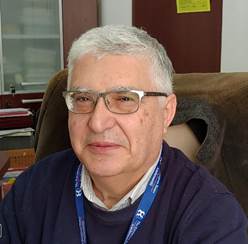
Center Director: Dr. Franco Maria Buonaguro, National Cancer Institute – IRCCS “Fondazione Pascale”, Napoli
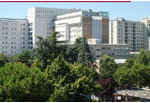
University of Padova
Department of Surgery, Oncology & Gastroenterology
via Gattamelata 64
35128 Padua
The Department of Oncology and Surgical Services is nestled under the University of Padua, founded in 1222 in Italy. The main aim of this new Department is to integrate clinical and basic research with teaching of both undergraduates and post-graduates within the School of Medicine. Clinical and preclinical research lines are thus shared among the various units of the Department, which are routinely involved in diagnostic and therapeutic management of patients referred to the University Hospital of Padova. The Department also has the following main research and teaching fields: surgery (oncology, abdominal transplants, geriatrics, endocrinology, urology, orthopaedics), oncology and immunology, and gastroenterology. Specific fields of interest are human oncogenic viruses ( HTLV, HIV, HHV8, EBV, HPV ), and tumor immunology. Main facilities include SBL3 lab, animal quarter with SBL3 containment room ( mice ), labs for flow cytometry,confocal microscopy, cytogenetics, SBL2 for tissue culture, molecular virology and molecular oncology.
Member Researchers: Luigi Chieco-Bianchi, Maria Luisa Calabro, Vincenzo Ciminale, Donna Mia D’Agostino, Annarosa del Mistro, Anita DeRossi, Antonio Rosato, Paola Zanovello
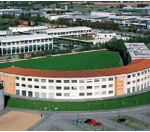 Istituto Zooprofilattico Sperimentale delle Venezie (IZSVe)
Istituto Zooprofilattico Sperimentale delle Venezie (IZSVe)
viale dell’Università, 10
35020 Legnaro
Venice
The Institute Zooprofilattico delle Venezie (IZSVe) is a healthcare institution governed by public law, which carries out prevention, control and research in the field of animal health and welfare, food safety and environmental protection. The IZSVe is responsible for diagnosis and research on diseases transmissible from animals to humans, epidemiological surveillance, and control of the quality and health of products of animal origin intended for human consumption, among other roles. In 2012, the Institute conducted over two million examinations related to health, animal welfare, epidemiological surveillance and food security, particularly the hygiene of food of animal origin.
Member Researchers: Ilaria Capua, Giovanni Cattoli, Calogero Terregino, Paola de Benedictis, Maria Serena Beato, Isabella Monne, Marco de Nardi
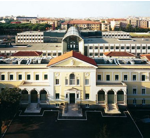 National Institute for Infectious Diseases – L. Spallanzani, Rome
National Institute for Infectious Diseases – L. Spallanzani, Rome
Via Portuense 292
00149 Roma
The Hospital “Lazzaro Spallanzani” was opened in 1936 as a garrison for the prevention, diagnosis and treatment of infectious diseases, with space for 296 beds in 15 different pavilions and an area of 134,000 square meters. Over the years, the field of interest has gradually transformed as a result of the evolution of prevailing infectious diseases. A section dedicated to the care and rehabilitation of polio was activated during the 30s. In 1970 the cholera epidemic became a major public health emergency, Also during this period the hospital began its commitment to the epidemic of Hepatitis B, especially connected with the problems of drug addiction. This experience is a starting point towards a specific expertise in acute and chronic viral hepatitis. Since 1980, the hospital Lazzaro Spallanzani was a major center for the care, treatment and research on HIV infection and AIDS. Currently, the Institute holds: the only Italian biosafety level 4 laboratories.
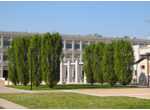 University of Brescia, Brescia
University of Brescia, Brescia
Piazza del Mercato, 15
25121 Brescia
The Università degli Studi di Brescia was officially established in 1982 with three Schools: Medicine and Surgery, Engineering, Economics and Business. However, the creation phase lasted nearly two decades, so the first attempts to open university courses in Brescia go back to the 1960s. A first initiative came from the Chamber of Commerce and the Provincial Administration, which opened negotiations in the early 1960s to set up a two-year course in Engineering as a branchof Politecnico di Milano. The excessive financial requirements caused the project to lapse. After this first attempt, the creation of the future Schools of Brescia moved along two distinct paths, one concerning the School of Economics, the other those of Engineering and Medicine.
Member Researchers: Arnaldo Caruso
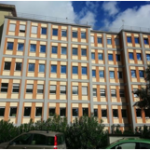 Istituto Nazionale Tumori “Fondazione Pascale” National Cancer Institute, Naples
Istituto Nazionale Tumori “Fondazione Pascale” National Cancer Institute, Naples
via Mariano Semmola
80131 Napoli
The National Cancer Institute “Fondazione Pascale” is the largest Institute for Hospitalization and Health Care (IRCCS) Oncology of the South and Centre of Reference for the national and regional oncology network. The Institute pursues research in the biomedical field and in the organization and management of health services, paying great commitment to the broader problems of the cancer patient which may range from psychological to nutritional problems, pain therapy, palliative care, to the most delicate phases of the disease. The Institute’s mission is to achieve excellence in the field of oncology and the identification of new and suitable guidelines on the prevention, diagnosis and treatment of cancer through clinical research and the ‘technological and management innovation, moving the centrality of the disease to the patient.
Member Researchers: Franco M. Buonaguro
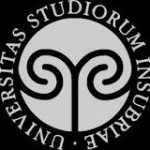
Università degli Studi dell’Insubria
Via Ravasi 2
Varese 21100
Member Researchers: Roberto Accolla
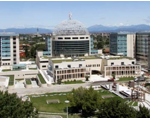 San Raffaele University and Research Hospital
San Raffaele University and Research Hospital
Via Olgettina, 60
20132 Milan
San Raffaele Hospital (SRH) is an international-level institute that hosts a general hospital highly specialized in the treatment of several important diseases and a private university, including a Medical School. The Hospital was established in 1971 and the status of Research Hospital (Istituto di Ricovero e Cura a Carattere Scientifico – IRCCS) was granted in 1972. Since 2012 it is part of San Donato Hospital Group, one of the biggest private hospital groups in Europe. The SRH is located in the north-east of Milan, close to the Linate airport, and covers an area of approximately 290,000 square meters. It is accredited by the National Health Service and provides over 50 specialty clinics that perform ca. 35,000 surgical interventions and 895,000 outpatient consultations. The multi-disciplinary structure, its technological advancement together with the constant interaction between scientific research, academic and clinical activities make SRH a leading research institute in Italy, as well as a referral centre in Europe and across the world for the study and treatment of various diseases. For over 10 years SRH has been at the top of Italian research institutes, with a total impact factor of 6,726 points in the last year. In 2013, more than 10% of all SRH scientific papers were published in top-level scientific journals (impact factor >10). For these reasons, SRH has been recognized as the most highly ranked Italian research hospital in terms of scientific quality and productivity.
SRH has been focusing on the global theme of Molecular Medicine for the last 20 years. This includes the comprehension of molecular processes at the basis of human pathology in order to develop innovative therapeutic strategies for diseases of the central nervous system, peripheral cardiovascular system and metabolism, tumors, infectious diseases (including HIV/AIDS), immune-mediated, genetic diseases and rare diseases as well as for the development of technologies in the field of genomics and imaging. Since 1996, a private academy, the University Vita-Salute San Raffaele University, which includes a School of Medicine and specific PhD programs, complements the range of activities carried out at San Raffaele Scientific Institute.
GVN-related activities at SRH include research on HIV-1, SARS and Influenza viruses carried out in dedicated BSL-2 and BSL-3 facilities.
Member Researchers: Guido Poli, Antonio Siccardi, Elisa Vicenzi
